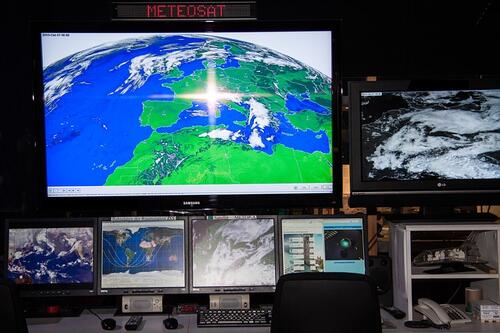
TV meteorologists could play key role in climate change education
Canadian meteorologists who deliver the evening news are interested in educating Canadians about the increasing impacts of climate change

Canadian meteorologists who deliver the evening news are interested in educating Canadians about the increasing impacts of climate change
By Media RelationsCanadian meteorologists who deliver the evening news are interested in educating Canadians about the increasing impacts of climate change.
A recent study from the University of Waterloo found that television weathercasters are increasingly interested in getting into climate change journalism, as opposed to just forecasting current conditions, but face a number of barriers to taking on the role.

“During the course of the research, it became clear that weathercasters across Canada are feeling a sense of responsibility to connect changes in their local communities, such as extreme weather, to the climate science they believe underlies them,” said Jason Thistlethwaite, an assistant professor in the Faculty of Environment. “But a lack of time and resources to convey the information appropriately to their viewers was often described as a significant challenge.”
In conducting the study, Bronwyn Mcllroy-Young, the study’s lead author and Thistlethwaite conducted a literature review and interviewed a number of TV meteorologists. Collectively, the group interviewed had worked at every major broadcast network in Canada and at locations across the country, most for more than 20 years.
“Many of the participants in the study indicated that although they would be willing to engage in climate change, the short amount of time on air limited their ability to do so,” said Mcllroy-Young. “Many Canadians are watching these weather broadcasts so we may be missing an opportunity to bridge the psychological distance between climate science and their day-to-day lives.”
Mcllroy-Young and Thistlethwaite’s study appears in the journal Environmental Communication.

Read more
The Future Cities Institute founded by CAIVAN will bring together leading minds from across sectors to solve the most challenging and urgent issues facing global cities.

Read more
The gift comes from two Waterloo alumni with passion and drive to have transformative impact

Read more
University of Waterloo and leading real estate developer The Caivan Group launch the Future Cities Institute
The University of Waterloo acknowledges that much of our work takes place on the traditional territory of the Neutral, Anishinaabeg and Haudenosaunee peoples. Our main campus is situated on the Haldimand Tract, the land granted to the Six Nations that includes six miles on each side of the Grand River. Our active work toward reconciliation takes place across our campuses through research, learning, teaching, and community building, and is co-ordinated within the Office of Indigenous Relations.